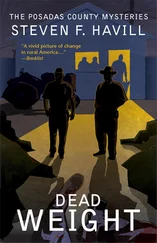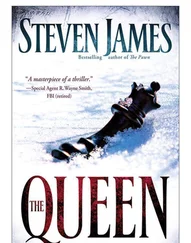Steven Dubner - Freakonomics
Здесь есть возможность читать онлайн «Steven Dubner - Freakonomics» весь текст электронной книги совершенно бесплатно (целиком полную версию без сокращений). В некоторых случаях можно слушать аудио, скачать через торрент в формате fb2 и присутствует краткое содержание. Жанр: Старинная литература, на русском языке. Описание произведения, (предисловие) а так же отзывы посетителей доступны на портале библиотеки ЛибКат.
- Название:Freakonomics
- Автор:
- Жанр:
- Год:неизвестен
- ISBN:нет данных
- Рейтинг книги:3 / 5. Голосов: 1
-
Избранное:Добавить в избранное
- Отзывы:
-
Ваша оценка:
- 60
- 1
- 2
- 3
- 4
- 5
Freakonomics: краткое содержание, описание и аннотация
Предлагаем к чтению аннотацию, описание, краткое содержание или предисловие (зависит от того, что написал сам автор книги «Freakonomics»). Если вы не нашли необходимую информацию о книге — напишите в комментариях, мы постараемся отыскать её.
Freakonomics — читать онлайн бесплатно полную книгу (весь текст) целиком
Ниже представлен текст книги, разбитый по страницам. Система сохранения места последней прочитанной страницы, позволяет с удобством читать онлайн бесплатно книгу «Freakonomics», без необходимости каждый раз заново искать на чём Вы остановились. Поставьте закладку, и сможете в любой момент перейти на страницу, на которой закончили чтение.
Интервал:
Закладка:
percent of their final-day matches against 8–6 opponents instead of the typical 80
percent. No matter how the data are sliced, they inevitably suggest one thing: it is hard to argue that sumo wrestling isn’t rigged.
Several years ago, two former sumo wrestlers came forward with extensive allegations of match rigging—and more. Aside from the crooked matches, they said, sumo was rife with drug use and sexcapades, bribes and tax evasion, and close ties to the yakuza, the Japanese mafia. The two men began to receive threatening phone calls; one of them told friends he was afraid he would be killed by the yakuza. Still, they went forward with plans to hold a press conference at the Foreign Correspondents’ Club in Tokyo. But shortly beforehand, the two men died—hours apart, in the same hospital, of a similar respiratory ailment. The police declared there had been no foul play but did not conduct an investigation. “It seems very strange for these two people to die on the same day at the same hospital,” said Mitsuru Miyake, the editor of a sumo magazine. “But no one has seen them poisoned, so you can’t prove the skepticism.”
Whether or not their deaths were intentional, these two men had done what no other sumo insider had previously done: named names. Of the 281 wrestlers covered in the data cited above, they identified 29 crooked wrestlers and 11 who were said to be incorruptible.
What happens when the whistle-blowers’ corroborating evidence is factored into the analysis of the match data? In matches between two supposedly corrupt wrestlers, the wrestler who was on the bubble won about 80 percent of the time.
In bubble matches against a supposedly clean opponent, meanwhile, the bubble wrestler was no more likely to win than his record would predict. Furthermore, when a supposedly corrupt wrestler faced an opponent whom the whistleblowers did not name as either corrupt or clean, the results were nearly as skewed as when two corrupt wrestlers met—suggesting that most wrestlers who weren’t specifically named were also corrupt.
So if sumo wrestlers, schoolteachers, and day-care parents all cheat, are we to assume that mankind is innately and universally corrupt? And if so, how corrupt?
The answer may lie in…bagels. Consider the true story of a man named Paul Feldman.
Once upon a time, Feldman dreamed big dreams. Trained as an agricultural economist, he wanted to tackle world hunger. Instead, he took a job in Washington, analyzing weapons expenditures for the U.S. Navy. This was in 1962. For the next twenty-odd years, he did more of the same. He held senior-level jobs and earned good money, but he wasn’t fully engaged in his work. At the office Christmas party, colleagues would introduce him to their wives not as
“the head of the public research group” (which he was) but as “the guy who brings in the bagels.”
The bagels had begun as a casual gesture: a boss treating his employees whenever they won a research contract. Then he made it a habit. Every Friday, he would bring in some bagels, a serrated knife, and cream cheese. When employees from neighboring floors heard about the bagels, they wanted some too. Eventually he was bringing in fifteen dozen bagels a week. In order to recoup his costs, he set out a cash basket and a sign with the suggested price. His collection rate was about 95 percent; he attributed the underpayment to oversight, not fraud.
In 1984, when his research institute fell under new management, Feldman took a look at his career and grimaced. He decided to quit his job and sell bagels. His economist friends thought he had lost his mind, but his wife supported him. The last of their three children was finishing college, and they had retired their mortgage.
Driving around the office parks that encircle Washington, he solicited customers with a simple pitch: early in the morning, he would deliver some bagels and a cash basket to a company’s snack room; he would return before lunch to pick up the money and the leftovers. It was an honor-system commerce scheme, and it worked. Within a few years, Feldman was delivering 8,400 bagels a week to 140
companies and earning as much as he had ever made as a research analyst. He had thrown off the shackles of cubicle life and made himself happy.
He had also—quite without meaning to—designed a beautiful economic experiment. From the beginning, Feldman kept rigorous data on his business. So by measuring the money collected against the bagels taken, he found it possible to tell, down to the penny, just how honest his customers were. Did they steal from him? If so, what were the characteristics of a company that stole versus a company that did not? Under what circumstances did people tend to steal more, or less?
As it happens, Feldman’s accidental study provides a window onto a form of cheating that has long stymied academics: white-collar crime. (Yes, shorting the bagel man is white-collar crime, writ however small.) It might seem ludicrous to address as large and intractable a problem as white-collar crime through the life of a bagel man. But often a small and simple question can help chisel away at the biggest problems.
Despite all the attention paid to rogue companies like Enron, academics know very little about the practicalities of white-collar crime. The reason? There are no good data. A key fact of white-collar crime is that we hear about only the very slim fraction of people who are caught cheating. Most embezzlers lead quiet and theoretically happy lives; employees who steal company property are rarely detected.
With street crime, meanwhile, that is not the case. A mugging or a burglary or a murder is usually tallied whether or not the criminal is caught. A street crime has a victim, who typically reports the crime to the police, who generate data, which in turn generate thousands of academic papers by criminologists, sociologists, and economists. But white-collar crime presents no obvious victim. From whom, exactly, did the masters of Enron steal? And how can you measure something if you don’t know to whom it happened, or with what frequency, or in what magnitude?
Paul Feldman’s bagel business was different. It did present a victim. The victim was Paul Feldman.
When he started his business, he expected a 95 percent payment rate, based on the experience at his own office. But just as crime tends to be low on a street where a police car is parked, the 95 percent rate was artificially high: Feldman’s presence had deterred theft. Not only that, but those bagel eaters knew the provider and had feelings (presumably good ones) about him. A broad swath of psychological and economic research has shown that people will pay different amounts for the same item depending on who is providing it. The economist Richard Thaler, in his 1985 “Beer on the Beach” study, showed that a thirsty sunbather would pay $2.65 for a beer delivered from a resort hotel but only $1.50
for the same beer if it came from a shabby grocery store.
In the real world, Feldman learned to settle for less than 95 percent. He came to consider a company “honest” if its payment rate was above 90 percent. He considered a rate between 80 and 90 percent “annoying but tolerable.” If a company habitually paid below 80 percent, Feldman might post a hectoring note, like this one:
The cost of bagels has gone up dramatically since the beginning of the year.
Unfortunately, the number of bagels that disappear without being paid for has also gone up. Don’t let that continue. I don’t imagine that you would teach your children to cheat, so why do it yourselves?
In the beginning, Feldman left behind an open basket for the cash, but too often the money vanished. Then he tried a coffee can with a money slot in its plastic lid, which also proved too tempting. In the end, he resorted to making small plywood boxes with a slot cut into the top. The wooden box has worked well.
Читать дальшеИнтервал:
Закладка:
Похожие книги на «Freakonomics»
Представляем Вашему вниманию похожие книги на «Freakonomics» списком для выбора. Мы отобрали схожую по названию и смыслу литературу в надежде предоставить читателям больше вариантов отыскать новые, интересные, ещё непрочитанные произведения.
Обсуждение, отзывы о книге «Freakonomics» и просто собственные мнения читателей. Оставьте ваши комментарии, напишите, что Вы думаете о произведении, его смысле или главных героях. Укажите что конкретно понравилось, а что нет, и почему Вы так считаете.











